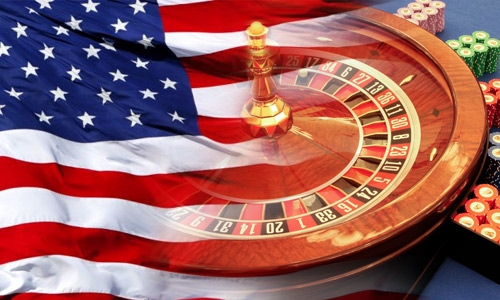
The history of casinos in the United States is a story that weaves together cultures, races, and the transformation of society. Casinos have become a vital part of American culture and economy, with origins rooted in early American history. The journey of casinos in the United States is as thrilling and unpredictable as the games they host.
The roots of gambling in the United States extend to the very first settlers. The native inhabitants of North America had their own gambling games, such as the shell game. European settlers introduced card and dice games, some of which were recognized as early versions of poker and blackjack. However, in the early days, there were no regulated casinos as we know them today. Instead, these games were often played in saloons and at riverboat gatherings.
During the 19th century, especially with the expansion into the West, the saloon became a common institution. These establishments served multiple purposes, acting as social hubs where people could drink, gossip, and gamble. Card games were the favorite, and it was here that poker gained its fame. However, gambling during this era was largely unregulated, leading to rampant cheating and violence. This wild era in gambling history became the basis for many of Hollywood’s Western films.
By the early 20th century, there was a growing push to regulate gambling. The State of Nevada took the lead, legalizing casino gambling in 1931. This led to the creation of Las Vegas, which would become the gambling capital of the world. Las Vegas introduced the concept of the modern casino, complete with table games, slot machines, shows, and luxury accommodations. The Flamingo, opened by mobster Bugsy Siegel in 1946, was one of the first of these luxurious casinos, setting a new standard for what a casino could be.
The success of Las Vegas prompted other states to reconsider their stance on casino gambling. In 1976, New Jersey legalized casinos but restricted them to Atlantic City in an attempt to revitalize the struggling seaside resort. The first casino, Resorts International, opened in 1978 and was an instant success, setting the stage for Atlantic City to become a major player in the casino industry.
In the late 20th century, another major development occurred with the rise of Native American casinos. A landmark Supreme Court decision in 1987, and the subsequent Indian Gaming Regulatory Act of 1988, allowed federally recognized tribes to operate casinos on their reservations. This led to a rapid expansion of casinos across the country, particularly in California and Oklahoma.
With the advent of the Internet, the next evolution of gambling in the United States began to take shape in the form of online casinos. The first online casinos started in the late 1990s. Although the legality of online gambling has been a topic of debate and is still unclear in some states, it has nevertheless experienced significant growth over the past two decades.
Casinos have had a significant impact on American society, both economically and culturally. They have created jobs, contributed to local and state economies through taxes and fees, and become major tourist attractions. Casinos have also had a cultural impact, influencing everything from music and films to fashion.
As we look towards the future, we see an industry that is continually innovating and changing. With the emergence of eSports, virtual reality, and cryptocurrency, casinos will likely continue to evolve, offering new and exciting experiences for their patrons.
The history of casinos in the United States is a fascinating journey that mirrors the development and evolution of the nation itself. From the early gambling games of Native Americans and settlers, to the rise of the modern casino in Las Vegas, and the digital transformation with online gambling, the industry has proved to be adaptable and resilient. As we look to the future, we can be sure that casinos will continue to be a part of the American cultural and economic landscape for years to come.
Q1: When was gambling legalized in Las Vegas? A1: Gambling was legalized in Las Vegas in 1931. This was during the time of the Great Depression, and the move was largely intended to stimulate the Nevada economy.
Q2: When did Atlantic City get its first casino? A2: Atlantic City got its first casino in 1978. This was Resorts International, and it marked the beginning of Atlantic City’s transformation into a major gambling destination.
Q3: What was the Indian Gaming Regulatory Act? A3: The Indian Gaming Regulatory Act, passed in 1988, established the framework for Native American tribes to operate casinos and other gaming establishments on their reservations.
Q4: Are online casinos legal in the United States? A4: The legality of online casinos varies from state to state. Some states allow online gambling, while others have restrictions. It’s important to check the laws in your specific state if you’re interested in online gambling.
Q5: How have casinos impacted American culture? A5: Casinos have had a significant influence on American culture. They have been depicted in countless movies, songs, and TV shows, contributing to a certain image and perception of the American lifestyle. Additionally, they have become popular tourist destinations and sources of local pride and identity.
April 19, 2025
April 19, 2025
April 19, 2025
April 19, 2025
April 19, 2025
April 19, 2025
April 19, 2025
April 19, 2025
April 19, 2025